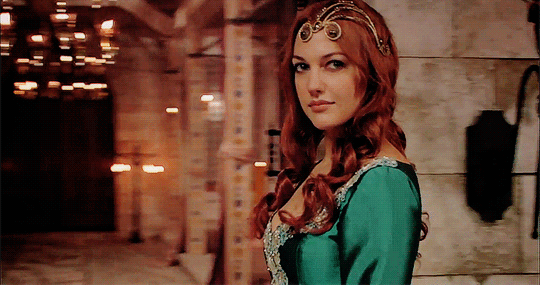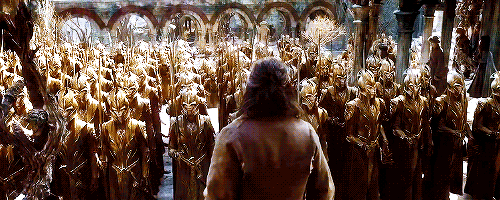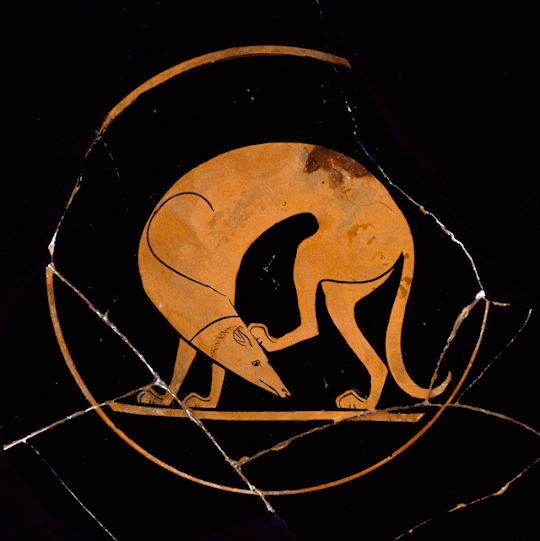Text
WIP Hospital: Shock

Shock occurs when blood flow halts suddenly due to trauma, heatstroke, blood loss, an allergic reaction, severe infection, poisoning, severe burns or other causes. Shock halts blood flow to the organs and if untreated, shock can cause permanent organ damage or even be fatal.
Kinds of Shock

Septic Shock: caused by bacteria
Anaphylactic Shock: caused by hypersensitivity or allergic reaction
Cardiogenic Shock: from heart damage
Hypovolemic Shock: from blood or fluid loss, and neurogenic shock from spinal cord trauma
Symptoms of Shock

Clammy/cold skin
Quickened pulse
Enlarged pupils
The fingertips/lips turn blue (or grey on darker complexions)
Sharp, shallow breathing
The person has turned pale or ashen
Nausea
Dizziness
Fainting
Weakness
Extreme Anxiety
Treating Shock

(it is always important to seek medical help)
Lay the patient down and elevate their legs and feet slightly. Do not attempt if you think this may cause pain or injury.
Keep the person still
Loosen tight clothing, to free them of constraint. If the patient is shivering, cover them with a blanket.
Don't let the person eat or drink anything.
Keep them calm by speaking with them until help arrives.
If the person vomits or begins spitting up blood, turn them onto a side to prevent choking.
582 notes
·
View notes
Text
Things to Consider When Creating a Fictional Mythology
How many gods and goddesses are there?
How are the gods and goddesses related to each other? How similar are these relationships similar to human ones?
Is there a ‘chief’ god? What makes them the strongest one? Have they always been the strongest?
How much do the gods meddle with human affairs? What motivates them to get involved?
Can humans have kids with gods? What special abilities to these kids have? How are they viewed by society?
Do humans pray, make offerings, or do other things to try to appease the gods?
Do people and/or societies tend to worship one god or goddess at a time, a handful that reflect their interests and priorities, or the whole pantheon? How does this vary between people and cultures? How do people who worship different gods or worship them to different degrees interact?
Which gods are the most widely revered?
What is the mythology’s creation myth? How does that reflect society’s values?
What traits does the mythology tend to idolize? What does it demonize? Have people’s interpretations of these things changed over time?
Who are the main, famous heroes of this mythology? What makes them so well regarded?
Do gods have different names, personalities, or physical portrayals in different cultures?
Have details about some gods been lost over time?
Do gods and goddesses look like humans? Animals? Something else entirely?
How have various myths been sanitized over time to make them more tame or child friendly? How many different versions of each myth are there?
2K notes
·
View notes
Text
Worldbuilding: Economy
Money makes the world go around and economics of a region makes it flourish or flop. Money and trade are important aspects of any world and you must pay attention to what your kingdom produces or lacks in resources.
Resources and Goods

Though we may touch on this again with another post. Your land must produce something. Even if it is a barren wasteland, your land must produce something in order to survive. It can produce items in categories.
Food: Food is a great way to make money. A seafaring kingdom might produce fish. A landlocked kingdom with fertile soil will produce wheat, barley, rye and other things. All of this can be sold either in the kingdom or abroad, a portion of the trade of course going to the government’s treasury. Food is always a good trade scheme but be mindful that it is something that can falter or be easily destroyed.
Materials: Kingdoms will produce some semblance of a material. It could be stone for building, gold for decoration, sulphur to make gunpowder or flax for making clothes. Materials are always desired at home and abroad and if your kingdom produces the best or most of a certain material it will be famous for it. Like Sheffield steel or Italian leather.
Skill: Sometimes people can be traded or their skills at least. A kingdom that sells a skill will be prized. Think of Sparta and their warriors, Athens and its wise men, Florence and its sculptors and painter or Japan and its software developers. A skill will enhance prestige on the world stage and give them a reputation.
Markets, Plazas and Agoras

When we talk about buying or selling, we often forget where this occurs. Every great city has a marketplace and every major town will have them. When you pinpoint where a character lives or where the story takes place, you should think of it’s economical value and status. Questions to ask yourself.
Home: Which city has the most power in the economy? Which costal areas are the major ports? Which city is the richest? How far do people have to travel to sell goods or buy them?
Abroad: Is there a trading route like the Silk Road? Which kingdom is the richest or poorest? What kingdom is hardest to travel to? Or the closest trading partner? Are there any countries that have been banned as trading partners?
Money or barter

There are two common types of payment for a good. You can pay with money or swap it for something else. Money of course can be in coin of note form. Look at my Fantasy Guide to Currency for more of this. Barter is easier in some cases. You have a goat and you want a small row boat. Is the goat worth the boat? Will all the milk the goat produces match or make more money that the fish the boatman catches? Do nobility use one system and the poor use others? When the tenants of a land pay rent is it in coin or barter? If they can’t pay in coin is bartering a common alternative?
Banking

All the world runs on the backs of banks. Pushing all the bad shit aside, banks are there to loan money or to store it. Banks give out loans for businesses or for projects. Most banks would expect some kind of repayment. In Renaissance times, a bank that did this was slandered as usurers. Banks have often wielded power. The Medici bank brought the owners up to the status of first family in Florence, Grand Dukes of Tuscany and even Pope. What do people think of the banks? Are they hated for their biting rates? Are they respected for their fair dealings with the people? What does the bank own? What are their relationship with the people, nobles and royalty?
Transportation and cost

To sell anything will cost you. You must calculate how much it would cost to make a good, transport it and sell it to a buyer. If you were selling something across the sea, how much will shipping cost you? If you were to have items brought to your home from another city, how would you do it?
Here is a problem for you to practice with: If a poor farmer wants to sell a cow in the capital and he lives fifty miles away beside a major road and river, with no wagon or horses and no money for passage on the river, how does he get there?
5K notes
·
View notes
Text
Fantasy Guide to Succession Systems

We usually write royal families based on the modern or medieval ones of history. We almost always fall into the trap of Male to Male succession because... that's usually what is done. We get confused over who is next when you kill off a cast of characters or have a strong female lead and we fall into a whole. But no longer. Here are some succession systems you can use in your fantasy setting.
Male to Male Primogeniture

This is when the firstborn son inherits everything outright from his dad. His son will inherit after him followed by his grandson and so on so forth. This is our main system of succession in real world history and fantasy. This can be an easy one to work off since there are so many examples. However, just as the real world is run by genetics, so will your fantasy land. There is a 50-50 chance of having a daughter or a son. You can't always bank on having a son. And if you have a surplus of sons, it can lead to trouble down the road.
Female to Female Primogeniture

There are some cultures that are strictly matrilineal, with inheritance passing to mother to daughter to granddaughter and so on. This can be another easy line to follow as it is basically the system up above just gender reverse. Examples of this succession can be found in Africa such as the role of Rain Queen where only females are eligible to take the throne and the Undangs of Negeri Sembilan in Asia. There are the same kind of issues such as the possibility that a daughter may not be born.
Tanistry

This is a Gaelic system for passing on titles and lands. The Tanist/ Tánaiste is the title bestowed upon the candidate chosen to inherit the throne who acts as a second in command. The eligible candidates would arrive at a chosen place and there would be a grand discussion on who gets to be named the heir. The candidates don't have to be a blood relative or even an ally of the current ruler. This was practised in Ireland, Scotland and the Isle of Mann and was also sort of practised in the Holy Roman Empire. The Vatican uses this to some extent though they might forgo all the drink... OK probably they do. There is no real issue with this, the best candidate is chosen and everyone has a say. Of course in politics, some force might be used in order of specific favourites to succeed but hey its nothing more than what's going on in modern politics.
Agnatic Seniority

This is another patrilineal inheritance system only this one is slightly more confusing. In this system, the succession goes from monarch to their younger brothers and then the monarch's own sons. The monarchs children don't inherit until the older generation have all died. Agnatic seniority bars all female descendants and their descendants from the throne.
The Ottoman Empire's Version of the Hunger Games (or just what siblings are like)

The Ottoman Empire had a fun succession order. Oh, perhaps not order. You see when a Sultan dies, his sons fight over who gets to be the next Sultan. The Şehzades (the male issue of the Sultan) will turn on one another, often having all their brothers and half brothers massacred by guards armed with bowstrings. This fratricidal system did work in the Sultan's favour as his throne was safe from claims of rivals. Yet if you get rid of all your heirs and you can't sire one and you die... well bye bye dynasty. The Şehzade who usually comes out on top will be the one who is backed by the military. This practise became less awful as years went by and the brothers of the Sultan were imprisoned in the harem in chambers called the Golden Cage or kafes. Some went insane and some actually succeeded the Sultanate.
Roman Adoption

The Romans didn't follow blood but rather the surname. Like the tanistry, a Roman noble/emperor would take stock of their relatives or even perhaps acquaintances and pick the best one. They would be given everything in the will including the right to inherit. Julius Caesar picked his great-nephew Octavian and in turn Octavian, now Augustus Caesar, chose his step-son Tiberius. If you go back through the Judo-Claudian dynasty you will see that most the heirs were adopted and not all came from the same bloodline.
Hope this helps @anomaly00
6K notes
·
View notes
Text
World Building Tips: Empires and Power Structures
World building is important in any setting. There are places, such as fantasy literature where it can become the difference between a believable world and an unbelievable one. Suspension of disbelief is often a critical part to stories.
Many fantasy books take place during times of war, or revolution or even a fall of a corrupt empire. I love reading these sorts of stories, as many people do. Power structures can be complex. They can be used to create tension and drama between characters - take for instance the hero versus the corrupt government troupe in fiction such as The Hunger Games, Harry Potter or even more traditional fantasies such as Tigana ( by Guy Gavriel Kay) or The Wheel of Time series (by Robert Jordan). As a reader it can be compelling to follow these stories. For writers though, it can seem daunting to go into the details of shaping a believable power structure. Here are some basic tips for creating one.
There are four crucial factors to any power structure. These are as follows:

1. Military - this includes the size of the army, the types of technology used (guns or swords? navy or land army?), the basic structure of the army (is it highly regimented like the Romans? What are the different groups within the army? How are they divided - by technology, skills or social status?). Another important question here is why has the military developed in this way? The Roman military, for example, grew out of competition with other Italian states. The opposition is equally important here - who were/are they within your story? Apply the above questions just as much to them, because empires and other structures are influenced by the world around them. The military can be the reason an empire begins in the first place. The military should also play a role in sustaining the power structure/empire. It doesn’t have to be the strongest factor by any means. It may even become the downfall of the structure in the end.

2. Economy - How is your power structure or empire funded? Does this change over time? Does your empire take part in internal or external trade? Is trade important to the running of the empire? Resources such as crops, fertile land or people are also a part of this and influences the larger actions (such as conquest) your structure takes towards other countries. Trade can be a form of control and influence as well, even outside of the structure’s territory. In terms of story, a lot of decisions that are made involve trade or economic reasons - no one wants to get on the wrong side of someone who controls valuable resources or trade with other entities. The British Empire was based mainly on trade and this insured a global influence even as it declined in actual power.

3. Administration: The system of government and the way it manages itself is important to know. Is it a traditional monarchy or a democracy? How is leadership decided? How is power delegated throughout the larger administration? Hierarchy? One person can’t do or know everything. In terms of empire and conquest this is equally important. Does the empire recruit the local elites from conquered areas to administer to the general public, like the Romans? If your story is set in the outskirts of your empire, this could effect the outcome of the story - local elites might enjoy the power they have gained through an alliance with the larger empire and thus be unwilling to revolt against it. What other ways does your power structure control its territory? Does it use culture, or a set language to spread out into new territory? What kind of empire is your empire? Is it land based (only conquering territories linked by land) or maritime (navy focused with overseas territory)?

4. Culture: How does your power structure interact with its subjects? Even in a small area, different ethnic groups exist, so what unites all of them together? Are they all united, or is there groups of people the power structure leaves out? Have they always been left out deliberately or have these groups formed over time?How does the the government and the people from inside the empire view outsiders and their culture? Does this influence your story or characters? Do negative stereotypes or different language create a barrier between your character and others? In newly conquered areas is the empire’s language, laws and social ideals endorsed to locals or is it forced upon them? Is religion important to how the empire works or interacts? For example, before war do the gods need to show approval for the empire’s commanders? What about clashes of religion with other areas? Where do cultures intersect? Is your empire influenced by an older power or a hard past? What is seen as integral to your structure’s culture - art, literature, music etc? Are allies connected with your structure through culture, a shared distant history?
Most power structures rely on all of these factors - but none are ever equal in importance. Your government will identify one or two of these areas as important and focus on them. This can impact how the structure comes together and eventually falls apart - the greatest strength becomes a weakness, or something is overlooked until it is too late.
This is a long post - so I’m going to leave it here for now. If you guys have any questions, feel free to use the Ask feature to contact me.
7K notes
·
View notes
Text
writing east asian characters
as a half east asian person, asian representaion is important to me, and i’m sure it is to all the other asians out there. but incorrect representation is far worse than no representation at all, so here are a few guidelines and things to keep in mind when writing an asian character.
things to keep in mind when naming:
please don’t make up names that “sound asian”. well known offender: cho chang from harry potter. hearing people mock me when i speak in my asian language by saying “ching chong chang” is bad enough, but making us asians read/hear about a character whose name is a constant reminder of that ignorance and racism really bothers me.
if the character was born in a different country, our first names aren’t always native to our language/country. we may or may not have a traditionally english name. a great example of this used correctly is ethan nakamura, from the percy jackson series.
coming up with a last name is not difficult - at all. just google “common (insert country/ethnicity) last names” and they’ll come up. use this for other ethnicities/races too!
this is really just common sense but don’t give a traditionally korean name to a japanese character, vietnamese name to a chinese character etc. (unless they are multiple ethnicities).
guidelines for physical descriptions:
please…don’t say they have slanted eyes. just don’t.
our skin isn’t yellow. we aren’t lemons. also, the asian race incorporates not just east asians but also filipinos and other much darker skinned people.
many east asians have straight, thick black hair. but again, even within the asian race we are diverse, so this isn’t always true.
of course, if your asian character is being faced with racism, you can have the racist character make fun of their eyes or skin. some asians make fun of themselves, but make sure you check w multiple asians to see if this joke is ok.
writing personalities, characteristics, quirks, etc.
east asians can have any personality, just like any black, white, or hispanic character. they can be mean, they can be nice. just make sure that if you only have one asian character, they aren’t shown as a villain. if you have multiple asians on both the “good” and “bad” sides, that’s perfectly ok.
stereotypes can definitely affect your character. be concious of them.
people’s personalities and quirks are shaped by their parents/how they were raised. an asian kid adopted by white parents is not going to act the same way or entirely fit in with other asians raised by asian parents. their cultures (or their parents cultures) will affect them.
east asian cultures
asians can be racist to other asians. in the past, koreans and japanese do not get along, and that has really showed in the japanese side of my family. my mother is quick to stereotype koreans she sees, but she does have korean friends she gets along with. racism among asians exists, and it’s not always black and white. rasicm also exists against other races; i’ve heard of an asian daughter who wasn’t allowed by her parents to marry a black man.
asians can have friends of multiple races/ethnicities
not all asians know their respective languages. some only know a little, some are completely fluent.
east asians don’t know everything about other east asian cultures, and can still accidentally insult other cultures. each culture is very different, so do your research on each one.
universal east asian culture things: 1) no shoes in the house. 2) do well in school. 3) strict rules on cleanliness, going out, friendships, relationships, and curfew. 4) mothers always wear slippers for some reason. 5) attacking insolent children with said slippers.
religion is also varied. usually it’s either christianity or buddhism, although there are of course, exceptions. the native japanese religion is shinto.
taiwan was recently the first country to legalize gay marriage, which is good news, but that also means that many asian countries are against it or don’t fully support gayness. not all asians are like this! but it’s common for asian parents to be less understanding of this kind of stuff so keep that in mind if your asian character is going to be gay.
stereotypes and their affects
asians are smart. this one probably came around because many asian parents are very strict when it comes to their child’s education, but strictness doesn’t equal understanding a subject you just don’t get. this stereotype is usually detrimental to asians because people expect too much of them. if they do well, it’s expected and less people congratulate them. if they don’t, they’re shamed for it more.
asians are bad drivers. this one doesn’t affect asians as badly as the smart stereotype, but it’s still insulting.
asians all look alike. again, this one isn’t really that bad, just very annoying. yeah, some of us look similar, but a lot of us are very different. i was once compared to a guy who was fully vietnamese, whose skin must have been at least ten shades darker, with black hair and was on the chubby side. i’m japanese, half white, with brown hair, and definitely thinner than him. if i genuinely look like the person you’re comparing me to, it’s not a problem, but it’s definitely offensive when we’re very different types of asian. we are all different and unique, and it’s important that people respect that.
it’s important to remember that not all of the things i said are always true - there are always exceptions. i’ve probably missed a lot of things. i also don’t pretend to know about every different kind of east asian. so if you have anything to add, feel free, and if you have any questions about how to portray an asian, ask someone of that ethnicity!
it’s okay if you didn’t realize that you belived in a stereotype or that you might have said something offensive once, as long as you learn from it and don’t do it again in the future. i hope non-east asians learned something from this post. good luck writing your asian characters! heck yea representation
side note: I’ve addressed this in other posts, but the example of cho chang as a bad name and is purely my opinion. many others may disagree, I just thought it was mildly ignorant and shouldn’t be used often. jkr in general is not a good author to model when it comes to representation of any kind. ty!
8K notes
·
View notes
Text
Things to Consider when Creating a Magic System
What are the drawbacks of using magic? Does it have mental, physical, and/or emotional consequences for the user?
What tools are needed to harness magic? Wands? Spells? Magical artifacts?
How do people learn magic? Instinct? In school? From family members?
Can everyone use magic or are only certain people capable of using it?
Is the capability to use magic hereditary? What about different ways of using magic (transformation powers, teleportation, etc.)?
What is impossible for magic to do?
How long does it take to master different magical skills?
Can creatures other than humans learn magic? Are different creatures better at using different kinds of magic?
Does it require spells to be spoken, written, or thought?
Is it possible for someone to lose their magical abilities?
How do characters’ emotions affect their ability to use magic? Do their emotions affect the magic’s intensity or controllability?
How does the strength of a person’s magical abilities change as they age?
Can people normally perform any kind of magic or can they only perform things that fall under their specialty? Are their exceptions?
What rules restrict magic use in society?
How do people’s magical abilities impact their career prospects?
What kinds of magic are the most feared or seen as the most powerful? Which are seen as mere jokes?
How do people use magic to help with everyday tasks?
Can magical energy be stored for later use?
What objects or other factors can amplify someone’s magical powers?
When do magical abilities initially manifest? From birth? At a certain age? Under certain conditions?
What is the first spell a character is likely to learn?
What happens if a spell is performed incorrectly? Nothing at all? A weaker version of the intended results? Pain?
Can different spell casting methods be used to obtain the same result? What are their advantages and disadvantages?
25K notes
·
View notes
Text
10 scene ideas for any genre and any story
1. A scene where the character’s biggest weakness becomes their saving grace.
A paranoid character brings the thing that protects them, a gossip shares information about someone which allows someone else to save their life, an impatient person forces someone to leave before tragedy hits. This can be used for as many characters as you have.
2. A scene where their greatest asset becomes detrimental to them.
A loyal person ends up following someone who’s toxic, a brave person ends up getting into an accident, a neat person ends up throwing out trash which was incredibly important. Again, can be used many times.
3. A scene where a character receives a gift.
This is good for any number of things–characterization, plot movement, showing relationships in motion. It can be directly relevant to the plot or symbolic of something else. Make it a genuine but bad gift, make it an amazing but insincere gift–the possibilities are endless.
4. A scene where they give a gift.
Same as before. Good gift or bad gift, it can reveal intentions, move the plot forward, create symbols–this is such a versatile scene type.
5. A scene where a child needs help.
Lost in the store, stuck in a trap, fell while playing–it shows something very simple about your character that you can’t show in any other way. There’s a simple grace to helping a child that you don’t know, and how you handle it is more telling than how you’d help a child that you do know.
6. A scene where they wake up from a nightmare.
Now, I love dream symbolism as much as anyone else, but the conscious actions they take after having a nightmare (and the physical actions they take while they’re still asleep) are just as interesting, if not more. Do they fall back asleep? Eat? Call a friend? Draft a letter? Do they remember the dream at all, or just the fear that went along with it?
7. A scene where worlds collide.
Maybe a character’s friends come into where they work, or they run into people who they’re no longer friends with. A family member brings home their S/O to reveal it’s someone that the character dislikes. Two different parts of their life now meet. How does the character react? How do they consolidate the different versions of themselves?
8. A beach scene
Any TV show that has a beach episode is an anime, right? Well, regardless, swimming is pretty much universally beloved–which means your characters would probably love it too. (And if you don’t believe that this can work in your story, then get creative! It doesn’t have to literally be at a beach, but humanity loves swimming.)
9. A scene where a character gets new clothing.
They have to go shopping, sit through a fitting while their parents makes them a new shirt, rummage through the remains of society in a post-apocalyptic world. Unless you’re writing about nudists (and who knows, you might be), they need to get their clothes somewhere, and seeing how they respond to that, what clothes they pick out, and what the process looks like in this world can be incredibly telling.
10. A scene where plans fall through.
Spice up conflict in your story or just show how characters react when things don’t go their way. Chances are, your characters will make plans at some point in the story, and making them go wrong is a great chance to thicken the plot and make your character more relatable or dislikable. (Or both. Both is good.)
4K notes
·
View notes
Text
How To Reference Romantic Attraction Between Your Characters:
Person A’s inability to make eye-contact for long periods of time while Person B is constantly looking into A’s eyes. (extra points if Person A looks away and blushes)
Interest Copying (When interested in another person, humans tend to copy that person’s movements, stature, etc)
Cute nervous ticks while around one another (Dont just use blushing and stuttering! Other ticks exist! Shuffling, fiddling their thumbs, scratching the back of their neck, bouncing their leg, nervous laughter, picking at their palm, biting the inside of their cheek, etc!)
Remembering little details about one another (How person A never eats the beans on their plate, or person B’s favorite color, the color of their eyes, where their birthmark is, are they a morning or night person? Bonus points if they figure this information out by observation, not by being told!)
Constantly smiling or laughing around their love interest
Confessing their love (but only in Spanish)
11K notes
·
View notes
Text
Words to describe someone’s voice :
adenoidal (adj) : some of the sound seems to come through their nose.
appealing (adj): voice shows that you want help, approval, or agreement.
breathy (adj): with loud breathing noises.
booming (adj): very loud and attention-getting.
brittle (adj): if you speak in a brittle voice, you sound as if you are about to cry.
croaky (adj): they speak in a low, rough voice that sounds as if they have a sore throat.
grating (adj): a grating voice, laugh, or sound is unpleasant and annoying.
gravelly (adj): a gravelly voice sounds low and rough.
high-pitched (adj): true to its name, a high-pitched voice or sound is very high.
honeyed (adj): honeyed words or a honeyed voice sound very nice, but you cannot trust the person who is speaking.
matter-of-fact (adj): usually used if the person speaking knows what they are talking about (or absolutely think they know what they are talking about).
penetrating (adj): a penetrating voice is so high or loud that it makes you slightly uncomfortable.
raucous (adj): a raucous voice or noise is loud and sounds rough.
rough (adj): a rough voice is not soft and is unpleasant to listen to.
shrill (adj): a shrill voice is very loud, high, and unpleasant.
silvery (adj): this voice is clear, light, and pleasant.
stentorian (adj): a stentorian voice sounds very loud and severe.
strangled (adj): a strangled sound is one that someone stops before they finish making it.
strident (adj): this voice is loud and unpleasant.
thick (adj): if your voice is thick with an emotion, it sounds less clear than usual because of the emotion.
tight (adj): shows that you are nervous or annoyed.
toneless (adj): does not express any emotion.
wheezy (adj): a wheezy noise sounds as if it is made by someone who has difficulty breathing.
29K notes
·
View notes
Text
friends to lovers, a writing guide
because i’m a sucker for best friends to lovers.
the mutual respect for each other
always protecting each other
knowing each other inside and out, everything from their favorite song, to what they named their favorite stuffed animal in second grade
doing whatever they can to make each other happy, and bring out a smile on each other’s faces
trying to hide their feelings, as to not ruin the friendship
feeling as their world is crashing down, tears welling in their eyes when their friend has gotten their heart broken, because they don’t deserve to feel like that, and it hurts to see their friend upset
the first kiss, and the realization of “it’s always been you”
starting to see each other in a different light
denial “there’s nothing going on between the two of us. i’ve known them forever, and they’re my best friend. nothing more, nothing less”
being jealous when they see their friend with their partner, and that’s when they realize they’re in love with them
complementing their friend in such a way only somebody who’s in love with said person could do “they’re the best thing that’s ever happened to me. they keep me grounded, and when i look at them… you know, if you replaced their smile with the sun, you wouldn’t notice the sun was missing’’
holding hands for the first time, locking eyes, blushing and chuckling
the first “official” date, which is not really a date but it feels like one
showing up at each other’s house late at night
when one of them is dropping hints, that they want to kiss, and the other one is completely oblivious to it, or has yet to bring the other one out of the friend zone so they’re just really not catching on because they’re just not thinking of their friend in that way yet
when one of them has accepted their feelings, and the other character says “we’re nothing but good friends!” to a mutual friend of theirs, and the first character’s just like :) yeah :) friends :)
spending time with each other’s family, their family mentioning how good they would be together or mistaking them for being together, because they’re just that compatible
3K notes
·
View notes
Text
34 Questions for Creating a Government
How long has it been around for?
Who is in charge? One person or multiple, and what is the title of the position?
How does the procession power work, should anything happen to #1?
How does a transfer of power work? Heritage, voting, fighting?
The person in charge: what are their abilities?
Who has the ability to declare war?
Does the general population have a voice or a representative body?
Are there different branches of government? How are they divided, and how are the members of each branch chosen?
How long does it usually take the government to come to a consensus on a decision?
If your world’s population is diverse, is it accurately represented by the people with governmental positions?
(Example: if your world has about a 1:1 ratio of men to women, does your governmental body also have a 1:1 man to women ratio?)
What can’t the government do?
What happens if the person in power is unfit to rule?
How are domestic insurrections and conflicts handled?
Is there any place where the government is centered, such as a capitol or Parliament building? Where is it, and why is it there?
Are there any extra measurements of protection for different government officials?
Has the government mandated anything in everyday life?
Examples: education through a certain age, access to housing or jobs, non-discrimination policies
What does the government regulate, if anything? For each thing, why?
Examples: wearing seatbelts, food and water quality
Think of people who are in minority groups. Is the government helping or harming them currently, and how is it doing that?
Is there anything the government is doing to ensure a standard quality of life?
What would be considered crossing a line for the government?
What are some of the most harshly punished crimes a person could commit?
Is the punishment for a given crime the same for every member of the population?
Are there people who are considered above the law?
What are some of the strangest things that are illegal?
In New York state, it’s illegal to throw a ball at someone’s head “just for fun.”
Are there any health regulations?
In the event of a war, does government structure change at all?
During a war, who participates and how do they get involved?
How is the government funded?
If the government is funded by taxes, does everyone pay an equal proportion?
Are government officials allowed to accept bribes? Do they?
What role does government play in the economy?
What do people in rural areas tend to think about the government? What about people in more densely crowded urban areas?
Do people in rural and urban areas have equal voices or opportunities to be heard?
Does government exist on different levels?
Examples: federal vs. state vs. town governments
Did this post help you out? Consider donating to my Ko-Fi!
Join my writing community on Discord!
1K notes
·
View notes